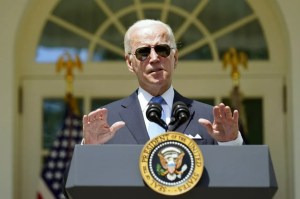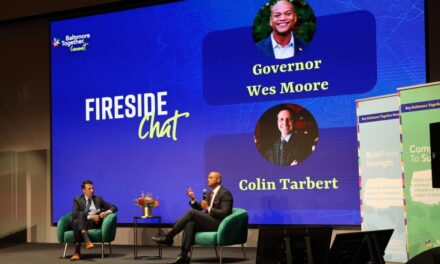By A.R. Shaw, Executive Editor
What would the Super Bowl be without diversity?
Imagine if Kansas City Chiefs’ Patrick Mahomes and Philadelphia Eagles’ Jalen Hurts were labeled “DEI hires,” a term used by some political figures and organizations to undermine the true achievements of embracing diversity.
Mahomes and Hurts prove how much diversity matters by leading their teams back to the Super Bowl, establishing a rematch of the only two Black quarterbacks to face off in the big game.

In two weeks, Philadelphia Eagles quarterback Jalen Hurts, (above) and Kansas City Chiefs quarterback Patrick Mahomes (below) will prove, again, the power of diversity when they lead their teams in the 2025 Super Bowl matchup. (AP Photo/Andre Penner)

But there was a time in sports when Black quarterbacks were not provided equal opportunities to lead on the professional level.
Two years ago when Mahomes and Hurts led their teams to the 2023 Super Bowl in Arizona, former Michigan State University quarterback Jimmy Raye made the trip to witness history and premiere the NFL-produced film, “The Indelible Legacy of Jimmy Raye.”
Raised in Fayetteville, North Carolina, during the height of segregation in the 1950s and ’60s, Raye became a standout quarterback in high school and went on to become one of the first Black players to start at the position for a Division 1 college football.
In 1966, Raye became the first Black starting quarterback at Michigan State University. He was also the first Black quarterback from the South to win a national title. Although Raye proved that he could play quarterback on the highest level in college, he was not given the opportunity to play the position in the NFL. Instead, he was converted to defensive back where he would endure a career-ending injury.
Raye faced the discrimination that prevented numerous Black quarterbacks from gaining opportunities at the professional level.
The implementation of discriminatory practices in pro football began after Fritz Pollard became the first Black NFL quarterback in 1923 for the Hammond Pros. In 1933, league owners agreed to ban Black players from leading as quarterbacks. The following year, there were no Black players in the NFL for the first time in its 14-year history. The ban on Black quarterbacks lasted until 1946.
But while the ban was lifted in the 1940s, there were very few starting Black quarterbacks as the league gained more exposure during the 1960s. Raye never got the opportunity to prove himself at quarterback as he did at Michigan State University, but he cheered on other Black quarterbacks who excelled in the 1970s and ’80s such as Joe Gilliam, James Harris, Warren Moon and Randall Cunningham.
Doug Williams would make history in 1987 by becoming the first Black quarterback to win a Super Bowl. In 2014, Russell Wilson became the second Black quarterback to win the big game.
“When Doug Williams won the MVP in the Super Bowl, I was thrilled,” Raye shared with me during the week of the 2023 Super Bowl. “And when Tony Dungy and Lovie Smith coached against each other as the first two Black head coaches in the Super Bowl, we were making progress. And then as the numbers increased with the number of Black quarterbacks in the league, it was inevitable that we would get two starting in the Super Bowl. And the same thing would be true if coaches were given the opportunity – not denied – given the opportunity for a more level playing field in the National Football League.”
Creating a level playing field was the objective of diversity, equality and inclusion from sports to business and political sectors. It attempted to provide space for candidates of diverse backgrounds to be given opportunities that were historically denied. The new administration’s attack on diversity initiatives has also led to several corporate entities following suit. However, an attack on diversity is an attack on the fabric of true American values of equality. It’s a bold attempt to stand on the wrong side of history.
In an alternate time period, Mahomes and Hurts would have never gotten a chance to lead their teams to the Super Bowl. However, we are all in danger of entering a time period when qualified candidates could face legalized discrimination because “DEI” has been shifted into a negative term. But diversity leads to overall success.
The World Economic Forum’s report “Diversity, Equity, and Inclusion 4.0” revealed that companies with diverse employees have “up to 20% higher rate of innovation and 19% higher innovation revenues.”
In sports, the impact of diversity continues to serve as a key example of its overall success.
I spoke with Hurts during the 2023 Super Bowl and he shared his thoughts on the importance of being a part of history.
“It’s a historic moment,” Hurts shared with me. “To everyone who laid the foundation before me, it’s transcending. Something so historic, it’s a big deal because no one is used to it. It’s good to be an encouragement to anyone watching, knowing it can be done. I think it’s an opportunity to honor all of the Black quarterbacks before me. It’s encouraging to the future. There are a lot of kids who have aspirations to play the position. People may tell them that they can’t do it, but they can. If you’re determined to do something, nothing worth having comes easy. Believe in yourself and keep fighting.”
In two weeks, Hurts and Mahomes will prove, again, the power of diversity. We can only hope political leaders will take heed as the fight for equality continues.
This article was originally published by the New Pittsburgh Courier.
The post Commentary: How Super Bowl quarterbacks Jalen Hurts, Patrick Mahomes prove diversity matters on and off the field appeared first on AFRO American Newspapers.











